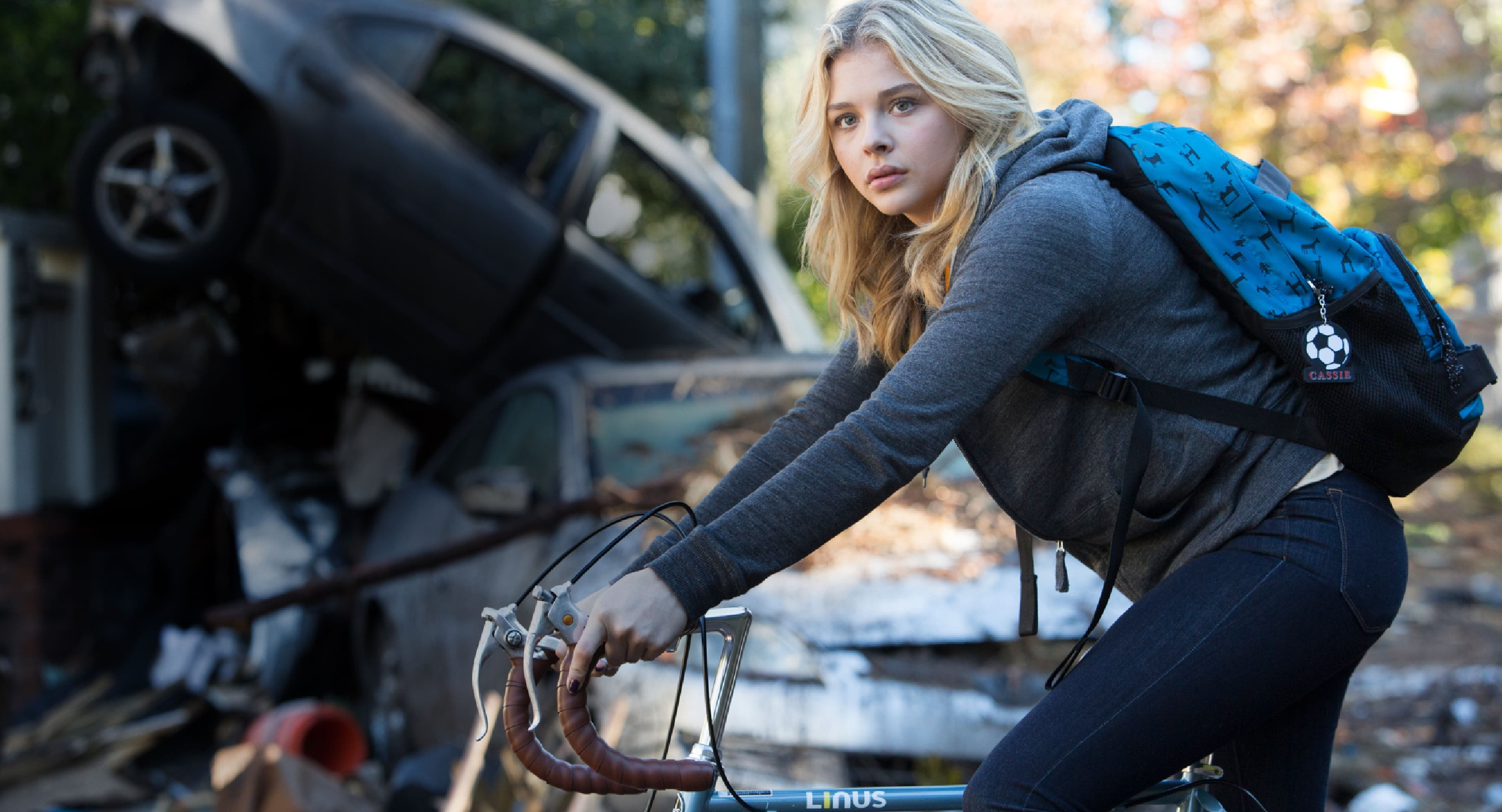The 5th Wave – Film Review
Published July 19, 2024

The 5th Wave, directed by J Blakeson and based on Rick Yancey‘s novel, attempts to ride the wave of young adult (YA) dystopian film adaptations that peaked in the early 2010s. With franchises like The Hunger Games and Divergent setting a high bar, The 5th Wave had a tough act to follow. Unfortunately, despite a promising premise and a few moments of genuine tension, the film ultimately falters due to its lackluster execution, clichéd storytelling, and underdeveloped characters.
The film centers on Cassie Sullivan (Chloë Grace Moretz), a teenage girl fighting for survival in a world decimated by an alien invasion. The invasion unfolds in a series of devastating waves: the first wave disables all electronic devices, plunging humanity into darkness; the second wave brings massive earthquakes and tsunamis, wiping out coastal cities; the third wave spreads a deadly virus, decimating the population; the fourth wave sees the aliens, known as “The Others,” disguising themselves as humans to infiltrate and destroy remaining survivors; and the looming threat of the fifth wave, which is initially shrouded in mystery.
Cassie’s journey begins with her family’s tragic separation during the chaos. Her father is killed, and her younger brother, Sam (Zackary Arthur), is taken to a military camp ostensibly run by humans. Cassie embarks on a perilous journey to rescue Sam, navigating a landscape fraught with danger and distrust.
One of the film’s strengths lies in its initial setup. The depiction of the alien invasion through the various waves is intriguing and effectively builds a sense of impending doom. The first wave, in particular, is chillingly plausible, tapping into our dependence on technology and the chaos that would ensue if it were suddenly stripped away. The subsequent waves, though more fantastical, maintain a certain degree of tension and suspense.
Chloë Grace Moretz delivers a solid performance as Cassie, portraying her as a determined and resourceful protagonist. Moretz’s ability to convey vulnerability and resilience makes Cassie a character worth rooting for, even when the script fails her. The film also benefits from strong supporting performances, particularly from Liev Schreiber as Colonel Vosch and Maika Monroe as Ringer, a tough-as-nails survivor who becomes a key ally.
However, these strengths are overshadowed by the film’s numerous weaknesses. The most glaring issue is the screenplay, penned by Susannah Grant, Akiva Goldsman, and Jeff Pinkner. The story feels derivative, borrowing heavily from other YA dystopian narratives without adding anything new or innovative. The plot is riddled with clichés and predictable twists, making it difficult to stay engaged.
Character development is another significant problem. While Moretz does her best with the material, Cassie’s character arc lacks depth. Her motivations are clear, but her growth throughout the film is minimal and superficial. Other characters fare even worse, with many reduced to one-dimensional stereotypes. Ben Parish/Zombie (Nick Robinson), Cassie’s high school crush who also ends up at the military camp, is particularly underdeveloped. His transformation from a reluctant soldier to a leader feels rushed and unconvincing.
The film’s pacing is also uneven. The first act sets up the story with a brisk pace, but the momentum falters in the second act, bogged down by unnecessary subplots and exposition. The romantic subplot between Cassie and Evan Walker (Alex Roe), a mysterious stranger who rescues her, feels forced and detracts from the main narrative. Their chemistry is lukewarm at best, and the love triangle involving Cassie, Evan, and Ben lacks emotional weight.
Visually, The 5th Wave is competent but unremarkable. The special effects are serviceable, but they fail to leave a lasting impression. The action sequences, while occasionally thrilling, are hampered by shaky camera work and choppy editing. The film’s color palette is drab, reflecting the bleakness of the story, but it also contributes to a sense of visual monotony.
The 5th Wave touches on themes of survival, trust, and the loss of innocence, but it fails to explore them in any meaningful way. The concept of “The Others” disguising themselves as humans presents an opportunity to delve into paranoia and the breakdown of societal trust, yet the film barely scratches the surface. The military’s role in the story hints at a critique of authoritarianism and the manipulation of fear, but these ideas are not fully developed.
Additionally, the film struggles to balance its darker elements with moments of levity or hope. The pervasive sense of despair can be overwhelming, and the few attempts at humor or light-heartedness feel out of place. This tonal inconsistency further detracts from the overall impact of the story.
The 5th Wave is a disappointing entry in the YA dystopian genre. Despite a promising premise and a few strong performances, the film is ultimately let down by its derivative plot, underdeveloped characters, and uneven pacing. Chloë Grace Moretz’s earnest portrayal of Cassie is a highlight, but it is not enough to elevate the film above its many flaws.
